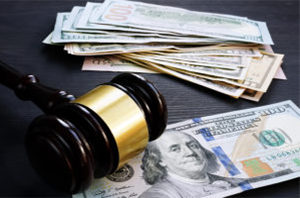
Under the relevant laws on libel, writers, editors, and publishers could be charged for the publication in any medium of a malicious defamation intended to impugn the reputation of any person, group of persons, or association of persons living or dead. A defendant could be found guilty of libel if the malicious defamation exposed the defamed person to contempt, ridicule, or public hatred or if the libel blackened the memory of the dead or impeached the honesty, integrity, or virtue of the living.
Writers, publishers, and editors are the primary parties who could be charged with libel because they are typically the individuals who would be considered responsible for the defamation that hurts the reputation of the victim who is libeled. In some cases, however, it is not just the writer, publisher, or editor who is culpable. There are circumstances where someone provides writers with false information.
Providing this false information could result in criminal charges for libel, and the penalty for conviction for these charges could be serious and could potentially involve jail time. If you are accused of providing libelous information, you should reach out to LV Criminal Defense today to get help.
Our Vegas defense lawyers have provided representation to many defendants accused of all different types of crimes under Chapter 200 of Nevada’s criminal code and we can put our legal experience with Nevada’s criminal laws to work to help you fight against accusations that could leave you facing penalties and a criminal record. Give us a call today to find out more.
Nevada Revised Statute section 200.550 is the statute that addresses providing false information. According to the relevant statute, any person could be charged with the crime of furnishing false libelous information if that individual willfully states, delivers, or transmits information by any means to a manager, editor, publisher, reporter, or any employee of a magazine, a newspaper, a periodical, a publication or a serial.
Nick Wooldridge has a long track record of representing clients accused of serious federal and state crimes in Nevada.
The prosecutor would have to prove that the false, libelous information concerns a person or a corporation and, if published, would be considered likely to expose the defamed person to contempt or besmirch the defamed person or company’s reputation.
In libel cases, it is possible to present information to the jury showing that the alleged defamation is actually true information. If you have been accused of furnishing libelous information, showing that the information was actually true is one possible way that you could defend yourself. You could also try to introduce reasonable doubt regarding your guilt for the offense of furnishing libelous information.
Deciding on the right legal response to charges in connection with furnishing libelous information can be a challenge. The crime is considered to be a misdemeanor, so unless you want a misdemeanor conviction on your record, it is important that you get the proper legal help to try to fight the accusations against you. Misdemeanor offenses can also sometimes result in jail time as a penalty, so fighting charges of furnishing false information is very important to protect your future.
LV Criminal Defense can provide you with assistance in responding to any criminal charges you face for crimes against people, including charges in connection with libel. Our legal team is here to provide the advice you need from the time you come under investigation until the end of your involvement with the criminal justice system. To find out more about how we can help you with your case, give us a call today.
When I initially met with Mr. Wooldridge, he took the opportunity to sit and go over my problem with me. He described details in my case which he found disturbing and explained why he I should have him on my side.